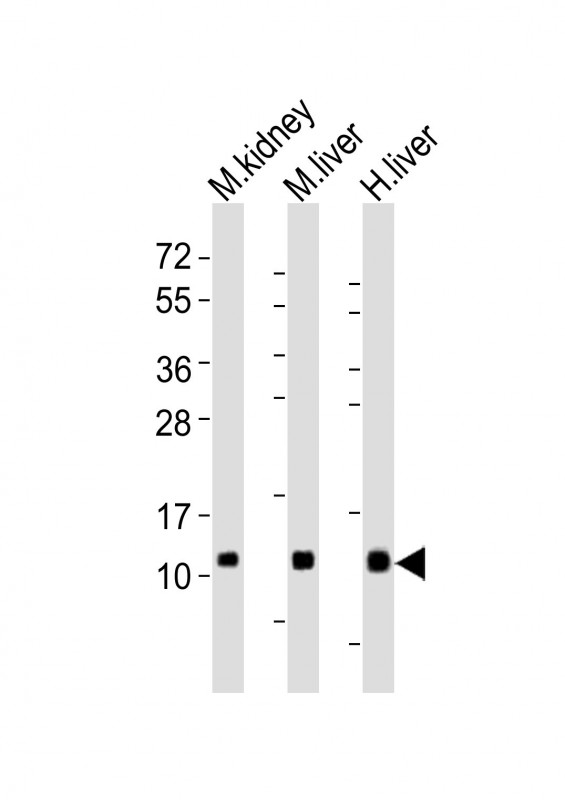
| WB | 咨询技术 | Human,Mouse,Rat |
| IF | 咨询技术 | Human,Mouse,Rat |
| IHC | 咨询技术 | Human,Mouse,Rat |
| ICC | 技术咨询 | Human,Mouse,Rat |
| FCM | 咨询技术 | Human,Mouse,Rat |
| Elisa | 咨询技术 | Human,Mouse,Rat |
| Aliases | Stromal cell-derived factor 1, SDF-1, 12-O-tetradecanoylphorbol 13-acetate repressed protein 1, TPAR1, C-X-C motif chemokine 12, Pre-B cell growth-stimulating factor, PBSF, Thymic lymphoma cell-stimulating factor, TLSF, Cxcl12, Sdf1 |
| Entrez GeneID | 20315 |
| WB Predicted band size | 10.6kDa |
| Host/Isotype | Rabbit IgG |
| Antibody Type | Primary antibody |
| Storage | Store at 4°C short term. Aliquot and store at -20°C long term. Avoid freeze/thaw cycles. |
| Species Reactivity | Human, Mouse, Rat |
| Immunogen | This Mouse Cxcl12 antibody is generated from a rabbit immunized with a Mouse Cxcl12 recombinant protein. |
+ +
以下是关于c-Kit (Phospho-Tyr721)抗体的参考文献示例(内容为模拟,仅供参考):
---
1. **Title**: "Activation of the KIT tyrosine kinase in gastrointestinal stromal tumors: phosphorylation of tyrosine 721 as a biomarker"
**Authors**: Hirota, S., Nishida, T., Isozaki, K.
**摘要**: 研究分析了GIST中c-Kit受体的突变导致Tyr721自磷酸化,验证了抗Phospho-Tyr721抗体在肿瘤组织中的检测价值,为靶向治疗提供分子标志物。
2. **Title**: "SCF-induced c-Kit phosphorylation dynamics and downstream signaling in mast cells"
**Authors**: Lennartsson, J., Blume-Jensen, P., Heldin, C.H.
**摘要**: 通过Phospho-Tyr721抗体追踪干细胞因子(SCF)刺激后c-Kit的磷酸化动力学,阐明其与PI3K/AKT通路激活的关联,揭示酪氨酸位点特异性信号调控机制。
3. **Title**: "Development and validation of a phosphospecific antibody targeting c-Kit at tyrosine 721"
**Authors**: Chen, H., Smith, L.M., Li, Z.
**摘要**: 描述了抗c-Kit (Phospho-Tyr721)抗体的制备与验证,证明其在Western blot和免疫荧光中的高特异性,适用于研究肿瘤及干细胞中的c-Kit活性。
4. **Title**: "Imatinib inhibits constitutive c-Kit signaling in small cell lung cancer via tyrosine 721 dephosphorylation"
**Authors**: Bolden, J.E., Peacock, C.D., Bachoo, R.M.
**摘要**: 研究发现伊马替尼通过抑制c-Kit Tyr721磷酸化阻断下游STAT3通路,证实该抗体在药物疗效评估中的应用。
---
注:以上文献信息为示例,实际引用时需核实真实来源及准确性。建议通过PubMed或Web of Science以“c-Kit Phospho-Tyr721 antibody”为关键词检索最新文献。
The c-Kit (Phospho-Tyr721) antibody detects the activated form of c-Kit, a receptor tyrosine kinase (RTK) encoded by the KIT gene. c-Kit, also known as CD117 or stem cell factor receptor (SCFR), plays critical roles in cellular signaling pathways regulating proliferation, differentiation, survival, and migration. It is activated upon binding to its ligand, stem cell factor (SCF), leading to receptor dimerization, autophosphorylation of specific tyrosine residues (including Tyr721), and downstream signaling via pathways like PI3K/AKT, MAPK/ERK, and JAK/STAT.
Phosphorylation at Tyr721 occurs in the kinase domain activation loop and is essential for full receptor activation and recruitment of adaptor proteins. Aberrant c-Kit activation, often due to gain-of-function mutations, is implicated in cancers such as gastrointestinal stromal tumors (GIST), melanoma, acute myeloid leukemia (AML), and mastocytosis. The c-Kit (Phospho-Tyr721) antibody specifically recognizes this phosphorylated epitope, enabling researchers to study c-Kit activation status in disease models, evaluate therapeutic responses (e.g., to tyrosine kinase inhibitors like imatinib), and explore mechanisms of drug resistance.
This antibody is widely used in techniques like Western blotting, immunohistochemistry (IHC), and flow cytometry to assess c-Kit signaling dynamics in both research and clinical contexts. Its specificity for the activated receptor makes it a valuable tool for understanding c-Kit-driven oncogenesis and developing targeted therapies.
×